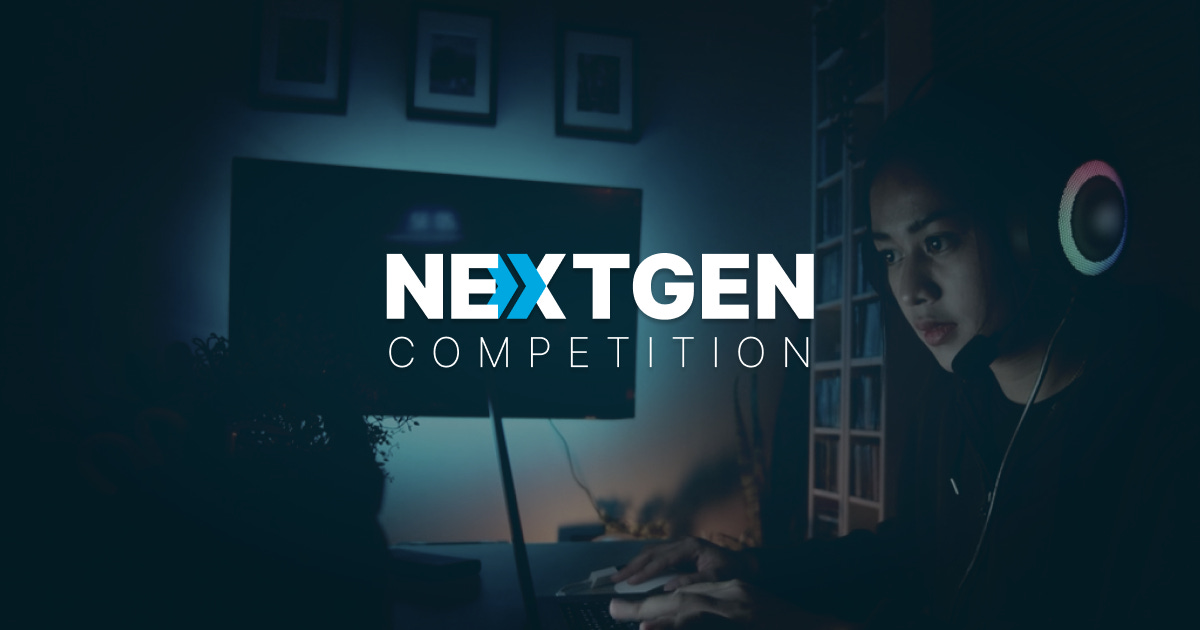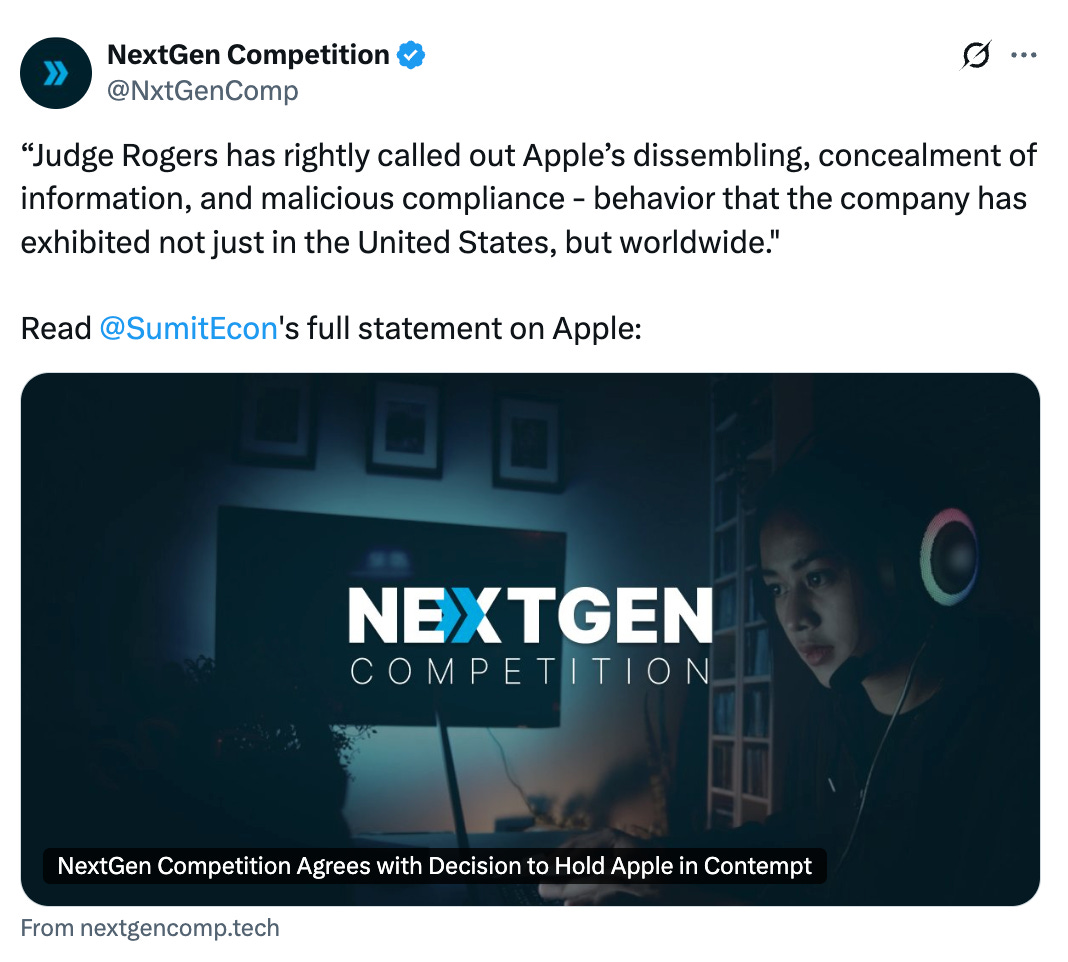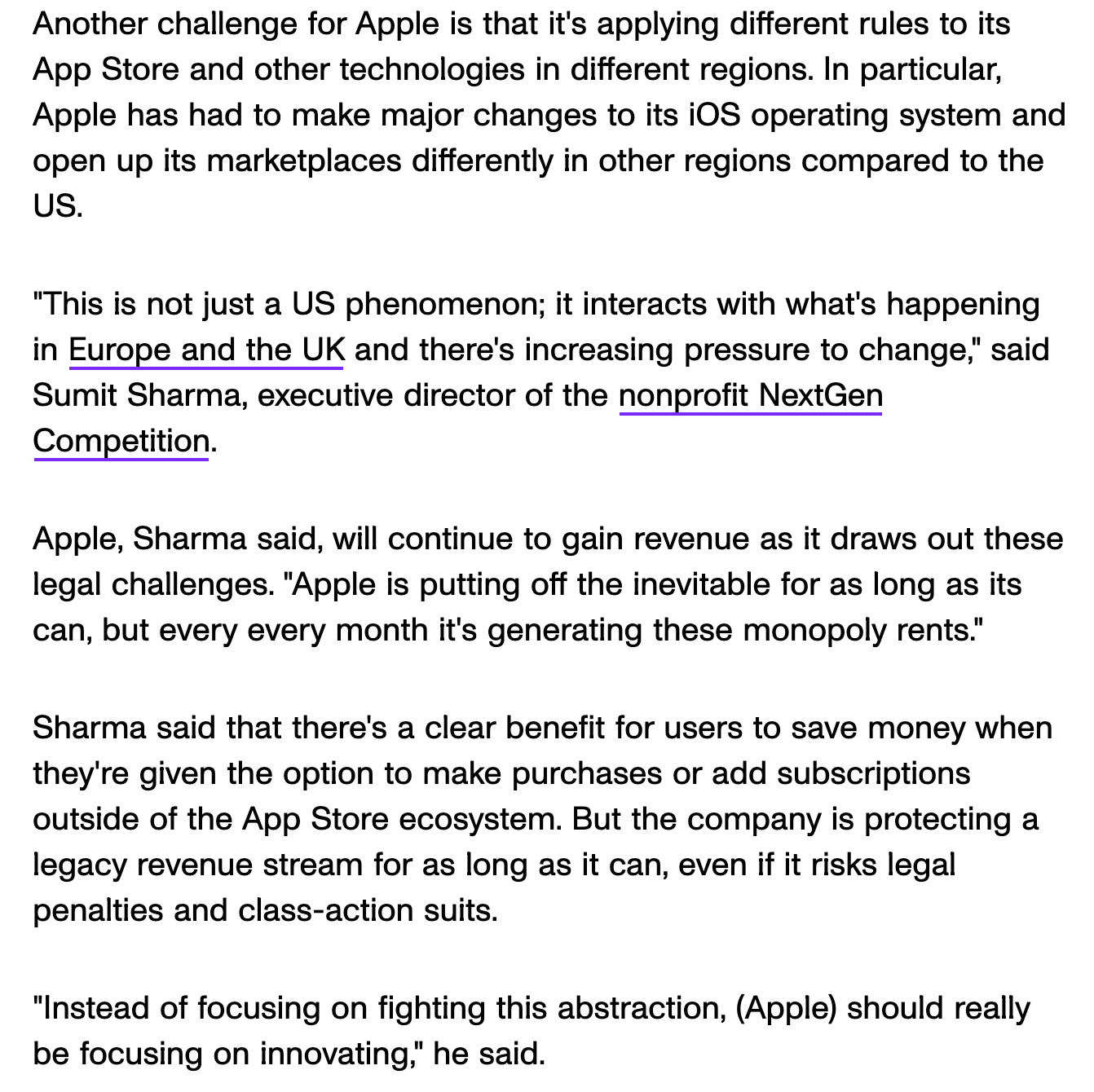Top Hat & Thimble - May 2025
Welcome to NextGen Competition’s newsletter, delivering insider insights on antitrust battles, industry shakeups, AI trends, and more.
The courts have ruled that Google illegally maintains its monopoly in two critical areas: general search – Google.com search services and related text advertising – and digital advertising on non-Google-owned websites via its control of some of the tools online publishers and advertisers use to price, sell, and buy ads.
At last Friday’s closing arguments in the search remedies trial (more on that here), I couldn’t help but think about how Google’s monopolies in these different markets are related. In particular, remedies in the search case may impact markets in the digital advertising case. So as we wait for Judge Mehta’s ruling (expected in August) and Judge Brinkema’s (expected after the September remedies trial) lets explore how what happens next could reshape digital markets for years.
Google’s illegal monopolies in general search services and general text advertising are also at the heart of Google’s control of digital advertising on the open web. As Judge Brinkema’s decision explains, Google uses the unique small advertiser demand driven by Google search (AdWords) to monopolize and illegally maintain its monopoly over key tools online publishers and advertisers use to price, sell, and buy ads on the open web. One monopoly feeds the other.
By requiring Google to syndicate general search text ads, competitors could offer credible alternatives to publishers, which would help drive down prices. On the ad tech side, non-discrimination would prevent Google from favoring its own products and charging excessive fees. The DOJ’s proposed remedies in search and digital advertising include measures to achieve these aims.
The rapid development of GenAI also highlights the importance of injunctions and interim measures while Google exhausts its appeals. Everyone seems to agree that search and digital advertising technologies are at an inflection point with the development of GenAI. As Y Combinator (a startup accelerator and venture capital firm) explains in its Amicus Brief:
“Experience has taught us that technological inflection points are critical moments for competition and innovation. The rise of novel, transformative technology can create an opening for nimble startups to disrupt established incumbents…the rise of generative artificial intelligence (“AI”), query-based AI, and agentic AI tools has the potential to be an especially significant inflection point.”
Timing is everything. The DOJ must ensure that injunctions and some interim measures are in place as soon as Judge Mehta makes his ruling on the search case. Waiting until Google exhaust its appeals would likely mean that nothing changes till 2027. This would be fatal to the DOJ’s efforts to pry open competition given how fast GenAI technology is evolving and how quickly Google is incorporating this technology into its products like search.
Strong, swift enforcement isn’t just about correcting the past, it’s about shaping the future of the internet.
Thank you for reading and your support.
With regards,
Sumit Sharma
Executive Director
NextGen Competition
Pressure Mounts on Google in Europe and the UK
The Justice Department’s effort to break up Google’s adtech business and open up search distribution across browsers, Android, and Apple devices isn’t just making waves in the U.S, it’s adding fuel to ongoing investigations abroad.
In Europe, the DOJ’s proposed remedies are expected to bolster the European Commission’s resolve to fully enforce the Digital Markets Act, while the UK’s Competition and Markets Authority continues its own scrutiny of Google’s conduct.
As antitrust lawyer Damien Geradin told POLITICO EU:
“In this tense geopolitical environment this [DOJ proposal] is good news for the European Commission.” At a time when the EU executive is “concerned not to aggravate the U.S. administration,” the Commission “can operate under the cover of the DOJ,” he said, as they can claim they are doing “the same thing.”
For regulators on both sides of the Atlantic, the message is clear: momentum is shifting, and excuses for inaction are running out.
Judge Holds Apple in Contempt
On May 1, Judge Yvonne Gonzalez Rogers of the U.S. District Court for the Northern District of California held Apple in contempt, saying the tech giant “willfully chose not to comply with this court’s injunction” from 2021, doing so “with the express intent to create new anticompetitive barriers” and that “Apple engaged in tactics to delay the proceedings.
Let that sink in.
Apple has been referred for a possible CRIMINAL contempt investigation after wilfully violating Judge Rogers’ injunction and a top Apple executive outright lied under oath. In response, NextGen Competition released the following statement and read all about it in an investigative piece by The New York Times’ Tripp Mickle.
Developers Sue Apple Over In App Payments
NextGen Competition had the opportunity to talk to Omar Gallaga at CNET about the app developer class action suit against Apple after the company undercut subscriptions and in-app purchases by refusing to comply with a court injunction.
Here’s Sumit on how the developer lawsuit fits into a global picture:
Other Competition News
Headlines from the past month you might have missed:
OpenAI’s Consolidation and Control: The AI behemoth announced that its nonprofit board would retain control of the company, walking back a proposed shift that would have given investors more direct influence. Elon Musk, one of OpenAI’s co-founders, was among the first to criticize the potential change, claiming the company had become “too focused on profits” and had strayed from its original mission to prioritize safety in AI development.
OpenAI also had a big month on the M&A front. It announced the acquisition of Windsurf, a programming tool, for a modest $3 billion, and io, the startup founded by CEO Sam Altman and Apple designer Jony Ive, for $6.5 billion.
Even with the nonprofit board retaining control, the question remains: will OpenAI truly succeed in breaking free of its dependence on Big Tech and be true to its purported “mission” to be a social benefit company and operate open interoperable ecosystems? 🤔
A Profile in MAGA Antitrust: In a wide-ranging piece, Politico’s Nancy Scola sat down with Antitrust AAG Gail Slater, outlining her time at the FTC to her current role leading the DOJ’s high-stakes antitrust case against Google. That case, which began under Trump and continued under Biden, could define her tenure. But as Scola notes, Slater’s most significant hurdle may be the President himself:
Slater’s biggest challenge could be her boss, who has a seemingly reflexive desire to offer running commentary on legal matters facing his presidency, even if it ends up harming his own policy goals.
Local News Bites Back: State lawmakers across the country are fighting back against Big Tech’s habit of monetizing local journalism without compensation. From California to Oregon, new bills are emerging to require tech platforms to pay for reprinting local news, aiming to restore financial stability to small-town and regional outlets.
One tech entrepreneur, Jeremy Gulban, is leading the charge through his company CherryRoad Media. Gulban is betting on the ability of small-town newspapers to push back against Big Tech’s media grip, saying, “They’re relying on our content without paying us for it.”
Congress Steps Up: Senators Elizabeth Warren (D-MA) and Eric Schmitt (R-MO) are aiming to loosen Big Tech’s grip on AI and cloud computing, especially where it intersects with the defense industry.
We’ve long argued that Congress needs to get on the field. Looks like it might finally be game time.
Can Europe Go Its Own Way? As Brookings’ Tom Wheeler reports, Big Tech flattery hasn’t saved it from sweeping DOJ and FTC investigations. Worse for the tech giants, it may have triggered a global shift. From billion-dollar EU fines on Apple and Meta, to major investments in cloud, software, and satellite infrastructure, Europe is accelerating efforts to reduce its reliance on U.S. tech.
What may have begun as a regulatory dispute is quickly becoming a strategic realignment that could undercut Big Tech’s global dominance:
Whether Europe succeeds in building a credible alternative to the American tech stack remains to be seen. But it is already clear that the United States is no longer viewed as a neutral steward of digital tools. In betting on Donald Trump, Big Tech may have provoked the very digital decoupling it hoped to avoid—and in doing so, may have helped to make European tech great again.
Hide and Seek: In a sharp piece for The Wall Street Journal, Tim Higgins skewers Big Tech for its reflexive secrecy. Concealment and misdirection not only erodes public trust, but it also gives regulators and rivals new ammunition. If these companies can’t act transparently in court, why should we trust them with our data?
Such skulduggery gives new credence to complaints by rivals and regulators that these companies are often leaning into obfuscation as one of the tactics used to protect their kingdoms. In addition, their actions in court seemingly confirm what their many critics contend: that Big Tech needs to be reined in.
Big Tech Mythbuster: In an article for Tech Policy Press, Professor John M. Newman lays out five of the most common myths about the Big Tech antitrust trials—and debunks them with clarity and precision. With experience at both DOJ and the FTC, Newman is uniquely qualified to address these misconceptions head on. From “government overreach” to “no consumer harm,” Newman dismantles the excuses Silicon Valley hopes you’ll believe.
Podcast Recommendation of the Month: On Slate’s Amicus podcast, Dahlia Lithwick and Kara Swisher delve into Big Tech vs. the government, and how “tech bros [are] bulldozing the constitution.” 🎙️
But antitrust reform is something that’s critical given the changing nature of our industry. And so we don’t really have clear and fair antitrust laws anymore that speak to the moment, I mean, because these companies don’t charge anything. But what is their harm? What is their price? And they would say none. And I would say quite a bit, because we end up cleaning up their messes almost continually…”
Until next month! In the meantime, follow us on X and BlueSky for the latest on Big Tech, AI, and antitrust. ⚖️




